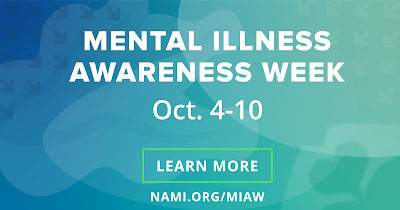The fight to cure stigma is a year-long effort, and it requires the participation of both those affected and the general public. Tens of millions of people in America and the world face the day-to-day reality of mental and behavioral health disorders.
Depression affects more than 300 million people globally. Depression is just one of many forms of mental illness. Some of the other more common types – in order of prevalence – include anxiety, post-traumatic stress, bipolar, borderline personality, obsessive-compulsive, and schizophrenia. Such conditions are treatable, and recovery is possible for those who seek help. Unfortunately, stigma can and does stand in the way of those who suffer.
It should go without saying that 2020 is one of the most challenging years on record. The global health care system is overburdened, and many people cannot get help for other pressing illnesses, such as mental health disorders. Still, there is help available, and those struggling can benefit from your encouragement.
October 4 – 10, 2020, is Mental Illness Awareness Week (MIAW). Organizations like the National Alliance on Mental Illness (NAMI) and the World Health Organization (WHO) would like your help in getting the message across that mental health is a priority. The mind and the body are connected; mental health impacts physical health. WHO points out that depression is the most common cause of poor health worldwide.
Mental Illness Awareness Week
This year’s MIAW theme is “What People with Mental Illness Want You to Know.” Using the You Are Not Alone campaign, NAMI shares stories of hope from people who have lived experience with mental illness. If you are up to it, you can share your story of hope with the world. Letting others know that they do not have to suffer in silence can be an impetus for recovery.
“Each year, millions of Americans face the reality of living with a mental health condition. However, mental illness affects everyone directly or indirectly through family, friends or coworkers. Despite mental illnesses’ reach and prevalence, stigma and misunderstanding are also, unfortunately, widespread.”
NAMI has also created social media graphics and messaging to be shared on the various platforms you visit daily. Letting the public know just how prevalent mental illness is can lead to changes in perspective. The world needs to understand that no one chooses to suffer from mental and behavioral health disorders. Mental illness deserves the same respect and attention as any other life-threatening health condition.
Important dates to remember:
- Tuesday, October 6: National Day of Prayer for Mental Illness Recovery and Understanding
- Thursday Oct. 8: National Depression Screening Day
- Saturday Oct. 10: World Mental Health Day
- Saturday Oct. 10: NAMIWalks National Day of Hope
The COVID-19 pandemic has led to a significant uptick in people experiencing symptoms of mental illness. Such individuals may need help, and they need to feel like they can seek assistance without fear of prejudice. What’s more, WHO points out the need for a more significant investment in mental health services.
World Mental Health Day
Saturday, October 10th, is World Mental Health Day. Sharing facts about mental illness and its global reach is imperative to societal well-being. WHO sheds light on some of the statistics, like the fact that nearly one billion people meet the criteria for mental illness. Perhaps even more startling is that over 75 percent of people with mental, neurological, and substance use disorders receive no treatment at all.
For every dollar invested in increased access to affordable treatment, there is a return of $5 in improved health and productivity. However, countries spend, on average, only 2 percent of their health budgets on mental health. This World Mental Health Day, WHO is calling on people worldwide to demand greater investment in life-saving mental health services. WHO’s campaign this year is Move for mental health: let’s invest.
“World Mental Health Day is an opportunity for the world to come together and begin redressing the historic neglect of mental health,” said Dr. Tedros Adhanom Ghebreyesus, Director-General of the World Health Organization. “We are already seeing the consequences of the COVID-19 pandemic on people’s mental well-being, and this is just the beginning. Unless we make serious commitments to scale up investment in mental health right now, the health, social, and economic consequences will be far-reaching.”
California Co-Occurring Disorder Treatment
More than half of men and women living with addiction also meet the criteria for a co-occurring mental illness like anxiety or depression. Please contact Hope By The Sea if you require help. Our team of highly skilled professionals can assist you in bringing about lasting change and healing. Please call 866-930-4673 to learn more. Hope Starts Here!



